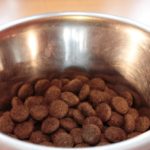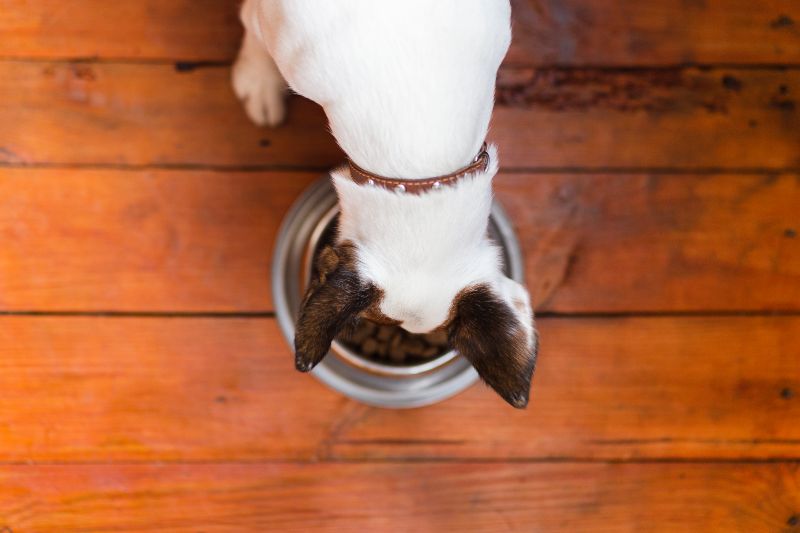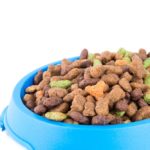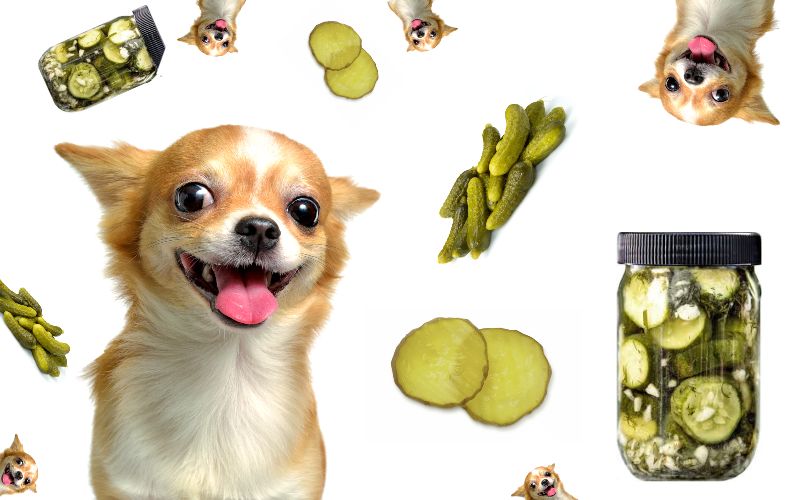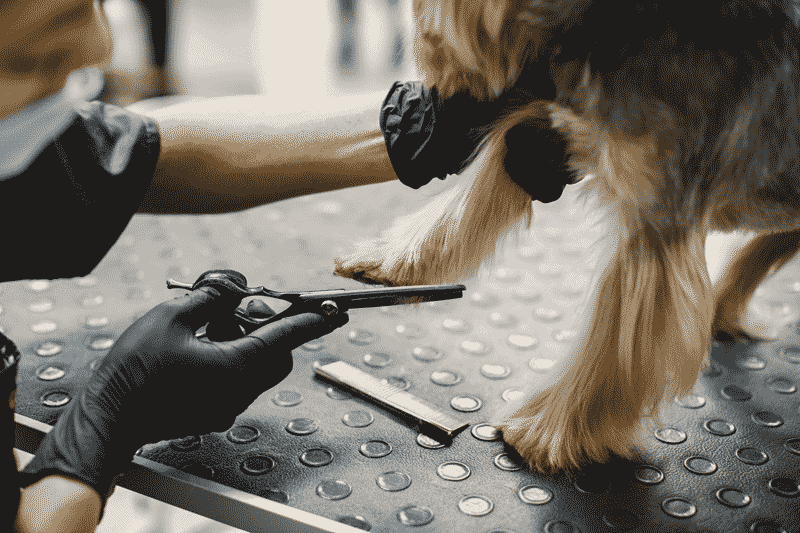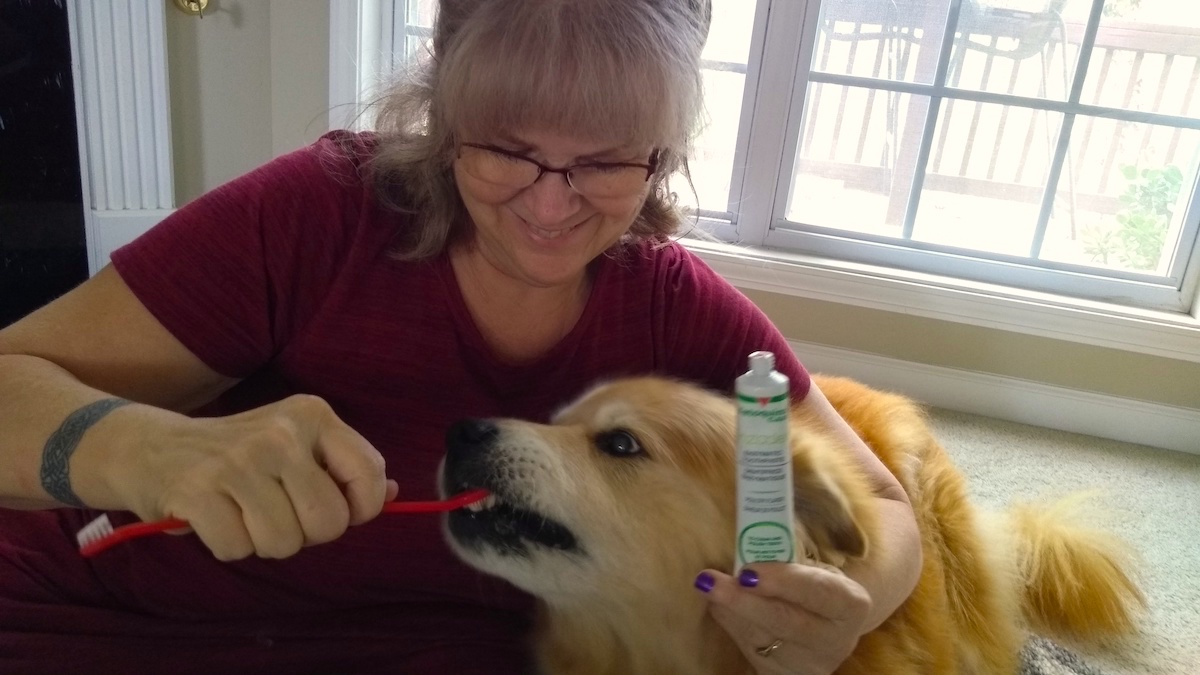
Can Dogs Eat Pickles? Advice on Dogs and Pickles
Simply put, pickles are small or sliced cucumbers that have been marinated in vinegar, spices and salty brine. Although pickles, or the cucumbers they originate from, contain vitamins and other nutrients, they are generally considered a low-calorie snack or condiment.
My dog, Haiku, loves everything – except for raw cauliflower — so I wondered if he would eat pickles. After diving into the hazards and benefits, I decided a taste test would be fine to get my buddy’s opinion… straight from the canine’s mouth!
Can Dogs Eat Pickles?
Yes, dogs can eat pickles, in moderation, and only if they have no health concerns (i.e. diabetes or heart condition)! Sodium is the greatest concern followed by the varying amounts of sugar, onions, and spice the individual brand contains.
Maybe the question could be rephrased to, “should dogs eat pickles?”. As we all know our canine companions can eat anything they get their paws on, but that doesn’t mean what they consume is always good for them.
As defined above, pickles are cucumbers preserved in a vinegar and salt brine, so in the pickling juice, not the cucumber, is where problems could arise. Consuming too much salt can certainly parch a pooch, making him very thirsty which then means a lot of trips outside to answer nature’s call.
However, hypernatremia, a condition where higher than normal concentrations of sodium exist in the blood, can cause vomiting, diarrhea, seizures and even death!
Too much salt is definitely not good for dogs, but let’s break it down regarding other ingredients and flavors before we further discuss the hazards.
-
Can dogs eat sweet pickles?
Should your dog dive into the buffet or picnic spread, or just have a hankering for a pickle, sweet pickles would be the better option as they contain fewer spices and their brine is not as salty.
Sweet pickles, however, still contain sodium, and although a cucumber is a vegetable, feeding your dog a raw cucumber or even a carrot, would be a healthier choice.
Bread and butter pickles are a sliced, sweet pickle that typically contains quite a bit of sugar (depending on the recipe, anywhere between 7 – 30 grams of sugar), along with peppers, onions, garlic, and spices, including salt, but not as much as can be found in dill pickles.
-
Can dogs eat Hot & Spicy pickles?
In addition to the sodium, hot and spicy pickles contain chili pepper and/or other hot spices that can be harsh on a dog’s tummy, thus so far… sweet pickles appear safer.
-
Can dogs eat dill pickles?
While dill, the herb, may prevent bad breath, contain antioxidants and aid the digestive system, when mixed with vinegar, water, and salt, the benefits to your dog from eating a dill pickle are nil.
If your dog watches you enjoy biting into a crisp, flavorful dill pickle, his mouth may water, and he may beg for a bite. Like with the sweet and hot & spicy pickles, a taste might do the trick in satisfying your dog’s curiosity.
Dill pickles, however, should not top the list of pickles to feed our canine pals since the 700 – 1,500 mg of sodium that can be found in just one medium-sized pickle, far exceeds a dog’s daily requirement of only 100 mg of salt!
10 Best Grain Free Dog Foods in 2022 - A review of 10 of the best grain free dog food options on the market, complete with information on their ingredients, pros, and cons.
Are Pickles Bad for Dogs?
Yes, pickles are bad for dogs.
However, do keep in mind it isn’t the pickle (aka cucumber), but rather the fermentation solution that could make pickles bad for dogs. We’ll help you decide by next assessing the ingredients to determine potential health hazards.
- Salt is the biggest culprit. A little extra sodium once in a while will not hurt your pooch, but too much at once or frequently can cause high blood pressure or hypernatremia, aka salt toxicity.
If you read your dog’s food label, it is likely that 100% of his daily salt requirement is already in his food, so adding more to his diet is not necessary, and too much can harmful.
- Sugar can cause weight gain, cavities, and even diabetes. Caution: some “lite” pickles contain xylitol, an artificial sweetener that can quickly drop your dog’s glucose level and lead to liver failure.
- Onions can be toxic since they are capable of damaging a dog’s red blood cells, triggering a condition called Heinz or Hemolytic Anemia. The hemoglobin develops red blood cell clumps that can no longer carry oxygen to the body as they should, so cells die quickly.
Any vegetable from the allium family (onions, shallots, scallions, chives, leeks, and garlic) is potentially poisonous to dogs, although garlic is less problematic than the others. Unlikely that a few pickles will contain enough toxins to cause your pooch harm, Japanese breeds, like the Akita and Shiba-Innu, seem more at risk.
- Spices, especially hot ones found in the zestiest of pickles, can cause an upset canine tummy, including vomiting and diarrhea. Caution: although nutmeg is used in too small amounts to be problematic in most recipes, still be on the lookout for it on any pickle ingredient labels as nutmeg is toxic to dogs.
- Vinegar can cause allergic reactions in some dogs, mainly vomiting, diarrhea and flatulence.
Concluding, a taste won’t hurt, but your dog’s diet (like your own) should consist of the proper ratio of proteins, carbohydrates, and fats for their species and activity level.
Pickles are fermented in sugar, salt, and spices that do not benefit your dog’s diet, and although cucumbers contain fiber and some nutrients, the pickling process destroys much of their nutritional value.
An occasional bite of a pickle, however, should not cause your dog harm.
Some Ingredients in Pickles Are Good for Dogs
As stated, pickles are not good for dogs. However, some ingredients that go into pickles can be good for them if fed raw.
Dill is known to ease digestive discomfort, freshen doggy breath and reduce gas, so on occasion, a dill pickle could serve as a beneficial low-calorie treat. Vitamins B1, C, and K can be found in cucumbers and this long, green vegetable is high in fiber.
Cucumber also contains potassium, manganese, copper, phosphorus, biotin, silica and magnesium in their pre-fermented state, but, as mentioned above, the process breaks down much of their effectiveness.
Feeding a raw slice of cucumber to your dog is a healthier choice.
Can Dogs Drink Pickle Juice?
No.
The juice or brine serves no purpose and is potentially dangerous due to the high salt content, sugar and spices. Your dog will consume these ingredients in lesser amounts from eating a pickle than from lapping up the juice.
If your dog is dehydrated, there are safer ways to replenish the electrolytes he may be lacking:
- Dilute Pedialyte (the non-flavored, unsweetened type) ½ and ½ with plain water.
- Mix an electrolyte solution using 4 cups of water, 1 Tablespoon of sugar or honey and 1 teaspoon salt, but always speak to your veterinarian first.
What to Do When Your Dog Eats Pickles
Should your dog help himself to a buffet and gorge on pickles, sweet, dill or otherwise, call your veterinarian or the Pet Poison Helpline at once: (855) 764-7661 with the pickle jar label in your hands.
Be prepared to explain what symptoms your pet is exhibiting and if your dog has a known heart condition, diabetes or other health concerns.
Based on what you share, you may be advised to induce vomiting or get your dog to immediate veterinary care where a complete blood count, chemistry profiles, and urinalysis can help assess your pet’s condition.
Fluid therapy may be needed to correct electrolyte imbalances from too much salt.
If the concern is onions, emesis (vomiting) will be induced or the canine patient will be given activated charcoal to bind to the toxins.
If red blood cell damage has occurred, blood transfusions and intravenous dextrose may be needed to nurse your pooch back to good health.
33 Best Dog Food Brands for Every Type of Dog (Puppy, Adult, Senior) - What is the best dog food for senior dogs? How about puppies or adult dogs? We present 33 of the best dog food brands for every type of dog and their potential needs.
Conclusion
Dogs and pickles are not necessarily a match made in heaven. Most, like my pooch, don’t really care that much for them, but there’s always the possibility of your dog getting into the unsupervised pickle jar.
So, theoretically, dogs can eat pickles in moderation, and if they have no heart or glucose issues that could be compounded by the salt or sugar. However, we do not recommend it.
Always read labels, and advocate for your dog, by knowing and feeding only what’s best. If those brown eyes are staring and the drool is streaming, relent – one small bite won’t hurt, and it just may be the last time he begs for pickles!
DENISE FLECK is an award-winning author, animal care instructor and radio show host. She was named one of Pet Age Magazine’s “Women of Influence” for 2018, a “Most Inspiring Story” in 2017 by Voyage Atlanta Magazine and has been nominated for 6 Dog Writers Awards to be announced in early 2019.
Read more »